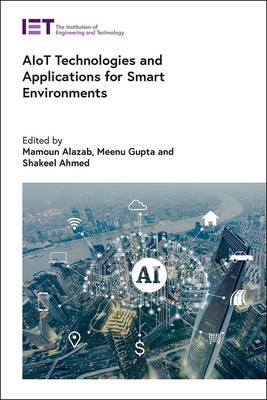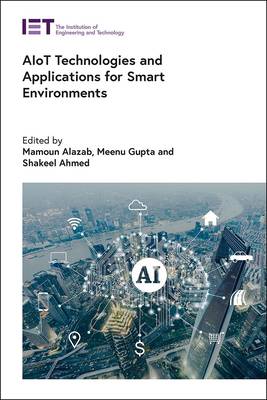
- Retrait gratuit dans votre magasin Club
- 7.000.000 titres dans notre catalogue
- Payer en toute sécurité
- Toujours un magasin près de chez vous
- Retrait gratuit dans votre magasin Club
- 7.000.0000 titres dans notre catalogue
- Payer en toute sécurité
- Toujours un magasin près de chez vous
Aiot Technologies and Applications for Smart Environments
Description
Although some IoT systems are built for simple event control where a sensor signal triggers a corresponding reaction, many events are far more complex, requiring applications to interpret the event using analytical techniques to initiate proper actions. Artificial intelligence of things (AIoT) applies intelligence to the edge and gives devices the ability to understand the data, observe the environment around them, and decide what to do best with minimum human intervention. With the power of AI, AIoT devices are not just messengers feeding information to control centers. They have evolved into intelligent machines capable of performing self-driven analytics and acting independently. A smart environment uses technologies such as wearable devices, IoT, and mobile internet to dynamically access information, connect people, materials and institutions, and then actively manages and responds to the ecosystem's needs in an intelligent manner.
In this edited book, the contributors present challenges, technologies, applications and future trends of AIoT in realizing smart and intelligent environments, including frameworks and methodologies for applying AIoT in monitoring devices and environments, tools and practices most applicable to product or service development to solve innovation problems, advanced and innovative techniques, and practical implementations to enhance future smart environment systems. Chapters cover a broad range of applications including smart cities, smart transportation and smart agriculture.
This book is a valuable resource for industry and academic researchers, scientists, engineers and advanced students in the fields of ICTs and networking, IoT, AI and machine and deep learning, data science, sensing, robotics, automation and smart technologies and smart environments.
Spécifications
Parties prenantes
- Editeur:
Contenu
- Nombre de pages :
- 333
- Langue:
- Anglais
- Collection :
Caractéristiques
- EAN:
- 9781839536335
- Date de parution :
- 03-04-23
- Format:
- Livre relié
- Format numérique:
- Genaaid
- Dimensions :
- 156 mm x 234 mm
- Poids :
- 648 g

Les avis
Nous publions uniquement les avis qui respectent les conditions requises. Consultez nos conditions pour les avis.





